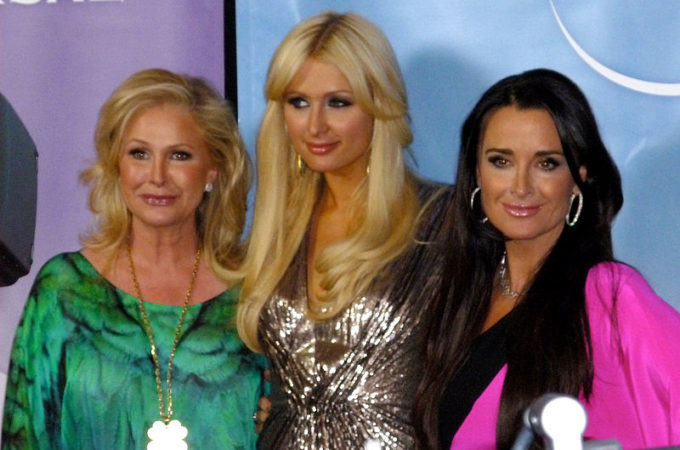Overview
We frequently hear the notion that the largest wealth transfer in modern history is commencing. With that, clients increasingly share their objective of multi-generational, or dynastic, planning. For me, as an estate planner, an immediate question arises, namely “How can we assist in accomplishing this objective? Evidently, a goal is their family’s success for years to come; how can we structure their estate plan to promote the financial protection, support and success of their family for generations? What is the interaction here among their family members, including dynamics and differing interests, their business(es) and ownership structures, and how will those facets play into our planning structure?”
My blog today will highlight three strategies that may be beneficial to clients who are interested in multigenerational planning, with an overarching goal of business succession planning -this involves not only ways to transition wealth, but also some of the considerations relevant to promoting the ongoing success of a family business in order to provide for the family dynastically.
Background
A key consideration in a plan is the ongoing governance structure for any given corporation within the family group of companies. This includes consideration of who is going to control the voting shares, as the controlling founder will be divesting themself of that interest in their company. Clients may initially think, “I’ll distribute my assets among my children, equally.” However, take for example, the Hilton family. The Hilton Hotel founder, Conrad Hilton, has eight children. Let’s presume he owned shares entitling him to all of the votes associated with Hilton Hotels. If the voting shares were distributed among his children with no planning, this may result in eight different perspectives and interests controlling an enterprise. This could, in turn, threaten the ongoing success of Hilton Hotels and, as a result, the objective of multigenerational protection.
Put another way, new persons are gaining the power to vote on decisions that directly affect the future success of the business. For example:
- What happens when the children grow to have diverging interests and do not agree on how to vote? Will this lead to conflict within the family?
- What happens when the children subsequently pass their shares on to the grandchildren before the grandchildren are ready to take on the responsibility of voting?
- How can a business family balance avoiding conflict within the family with making decisions that are in the best interest of the business?
First Consideration: Voting Shares Held In a Control Trust
To help protect family harmony and multigenerational success, clients may consider reducing risks associated with having different children (or family branches) owning voting shares. A tool that may be considered is the establishment of a centralized control system. For example, a client may facilitate issuing a new class of “thin” voting shares, which do not, strictly by their terms, have intrinsic economic value. Such shares may represent the votes that the client otherwise had and may be held in a trust. The trust may thereby hold the voting shares associated with the family enterprise and the children (or, as another example, their respective Holdcos or family trusts) may hold the common shares.
A control trust can act as a centralized investment vehicle where the trustees, as directors of the family business(es), control both the directors and leadership of the business(es) and how/when to distribute dividends.
If a client is concerned about the loss of control in trustees managing the voting shares, one tool to consider is a letter of wishes. Such letters recently have been discussed in the All About Estates Blogs.
Second Consideration: Shareholders Agreements
Shareholders agreements may be integral to maintaining the desired business structure through generations. They can clarify decision-making authority, place restrictions on the transfer of ownership, and establish rules by which shares can be bought and sold.
These agreements also may help protect family harmony and the successful transition of a business by facilitating transparency within the family. The agreement communicates with family members, as they acquire shares (if this was not discussed beforehand), various facets of the business, such as dividend policies, family protection values (for example, perhaps shares cannot be distributed to spouses), and the business’ assistance with tax liabilities arising on death (perhaps there will be corporate held insurance policies bookmarked for this issue).
Third Consideration: Maintaining the “Family” in “Family Business”
In Ontario, division of property upon the breakdown of a marriage is governed by the Family Law Act. Marriage contracts can be a significant tool in family protection (here asset protection). As such, some shareholders agreements may provide that marriage contracts are required in the interest of keeping the business’ assets within family members related by blood (or adoption or the like). Marriage contracts can restrict the transfer of shares to individuals outside of the family by providing that the spouse of a shareholder cannot be a shareholder.
The above considerations are merely considerations and again may be considered within the context of, among other things, tax laws, the clients’ unique families, goals, interests, and priorities.
If you would like to hear more of a discussion on the above, please feel free to register for the OBA’s webinar chaired by my colleague (Demetre Vasilounis) on Thursday October 6 – “Everyone Needs a Plan: Succession Planning fotor Millennials and Gen Z”, where I will be a panellist with Henry Korenblum (Rosedale Family Office), and Ibtisam Jemal (Beard Winter LLP).


1 Comment
Doris Bonora
September 2, 2022 - 1:38 pmthank you . good article